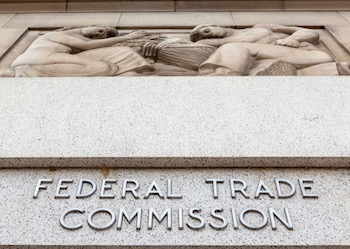FTC Approves Final Rule to Ban All New Non-Compete Agreements in 3-2 Vote
“For the federal government to insert itself into contractual relationships like this is breathtaking…. Should this action by the FTC stand, trade secret litigation will easily double, if not more, as businesses seek redress for employees who leave today and become a competitor tomorrow.” – Gene Quinn
The U.S. Federal Trade Commission today voted in a Special Open Commission Meeting to publish and approve a final version of the January 2023 proposed rule that would ban employers from using clauses for their employees. Today’s rule allows existing non-competes to remain in force for senior executives but bans new non-competes for all workers and makes existing non-competes for all other workers unenforceable after the effective date, which is 120 days after publication in the Federal Register.
According to a fact sheet on the final rule, “senior executive” is defined as “workers earning more than $151,164 annually who are in a ‘policy-making position.’” The FTC claims the ban will result in $400-$488 billion in increased wages for workers over the next decade and an estimated extra $524 per year per affected worker.
The proposed rule change was open for public comment between January 2023 and April 19, 2023. As of April 17, 2024, the Regulations.gov website indicated that 26,813 comments had been received and 20,697 posted.
But there has been opposition to the draft proposal among the business community, including the U.S. Chamber of Commerce, which said in April 2023 that “such a proposal fails to recognize that non-compete agreements can serve vital procompetitive business and individual interests—such as protecting investments in research and development, promoting workforce training, and reducing free-riding—that cannot be adequately protected through other mechanisms such as trade-secret suits or nondisclosure agreements.”
Commissioners Rebecca Kelly Slaughter and Alvaro Bedoya voted yes on today’s final rule while Commissioners Andrew N. Ferguson and Melissa Holyoak dissented. FTC Chair Lina M. Khan voted yes to break the tie.
In their comments, Slaughter and Bedoya applauded the rule, commenting that non-competes are inherently unfair and impede innovation. The Commission’s presentation on the final rule indicated that it will lead to 8,500 new businesses per year and an average increase of 17,000-29,000 patents per year over the next decade.
Slaughter and Bedoya also noted in their comments that the rule doesn’t go so far as to apply to certain nonprofits or franchisors due to limitations on FTC authority, but that they would like to explore ways to rein in non-competes in those areas as well.
Non-Competes for Senior Executives: Same Ban, Different Reasons
The presentation also claimed that non-competes for senior executives suppress competition in a different way than they do for other workers but should still be banned. Because senior executives are more likely to be able to negotiate compensation for having to abide by non-competes they are not as inherently unfair or coercive for the executives, but they instead stop new businesses being formed because these high-level workers are unable to establish or run them, said the FTC.
Trade Secret Concerns Dismissed
With respect to the business community’s concern that the rule will be detrimental to the protection of trade secrets, the FTC said they found “little evidence to support it.” The presentation explained:
“Firms have less restrictive alternatives for protecting trade secrets and other confidential info (including trade secret law, IP law, NDAs) and human capital investments (including fixed-duration contracts, pay/benefits). The benefits from these claimed justifications do not justify the harms from non-competes.”
Commenting on the proposed draft rule in an article for IPWatchdog, John Schroeder of Stinson LLP said that the FTC’s dismissal of the importance of noncompetes for trade secret protection due to alternatives available under trade secret law is misguided. “Whereas non-compete clauses can preclude a former employee’s opportunity to disseminate confidential or proprietary information, trade secret enforcement through civil litigation often only provides after-the-fact consequences once harm has already been done,” Schroeder wrote.
And IP litigator and trade secret expert James Pooley noted in another article the potential consequences:
“The FTC justifies much of its logic and confidence on California’s experience….One thing we are sure of: California leads the nation in trade secret litigation. That should come as no surprise, since its businesses have no other tool to protect their confidential information. It’s fair to question whether a surge in lawsuits in the rest of the country would be acceptable, or whether that outcome was even considered at the FTC.”
Commissioner Comments
Holyoak said the rule “compromises the integrity of the constitutional separation of powers” and that the Commission does not have the authority to promulgate legislative rules. While she conceded that some non-competes are harmful, Holyoak said the FTC should use its resources to target individual offenders instead of enacting a sweeping rule that applies across the board.
Ferguson agreed, commenting that “non-competes in some circumstances may undermine innovation but beginning with policy puts the cart before the horse.” He said the difficulty of legislating via Congress is a feature of the system, not a fault, and that the Commission does not have the power to declare non-competes unlawful across the whole country.
In her response to the commissioners’ comments Khan said she disagreed with Ferguson and Holyoak’s interpretation of the FTC Act and assured the public that the Commission has authority to enact the rule under the most straightforward reading of the text.
IPWatchdog CEO and Founder Gene Quinn said the final rule is likely to be challenged in court and possibly enjoined.
“The action taken today by the Federal Trade Commission is as stupid as it is unprecedented. For the federal government to insert itself into contractual relationships like this is breathtaking. Only those who have never employed anyone in the real world could think this makes any sense whatsoever. I suppose the good news is the Federal government has not yet ruled trade secret law null and void. These rules will undoubtedly be challenged in court, and I predict they will be enjoined before they ever actually become final, at least on a preliminary basis until all the litigation has sorted itself out. In the meantime, there will be an election in several months and there is real potential (if you give credence to polling in April) that a new Administration will take control in January 2025, which would mean a repeal of these regulations even if they do become effective. In any event, should this action by the FTC stand, trade secret litigation will easily double, if not more, as businesses seek redress for employees who leave today and become a competitor tomorrow.
The rule itself is entirely arbitrary, which will also cause enormous problems for the FTC. Existing non-compete agreements with senior executives can remain in force, but new agreements that are entered into after the date the rule becomes effective are anti-competitive and prohibited? How can it possibly be intellectually honest to think or suggest that an agreement entered into over the next 119 days can be perfectly fine but enter into that agreement 120 days from now and suddenly the same agreement is anti-competitive. Such an arbitrary and capricious view is moronic. If it will be anti-competitive in 120-days then the same agreement has to be anti-competitive 119 days from now.”
Initial Reactions
Here is what some other stakeholders had to say about the ban:
John Chun, Herrick, Feinstein LLP
“We will undoubtedly see legal challenges to the FTC’s authority, including whether the authority was delegated by Congress…. [The FTC’s] actions will continue to fuel ongoing calls for similar bans at the local and state level.”
Jeremy Merkelson, Davis Wright Tremaine
“Aside from the obvious problem that some non-competes only operate within the boundaries of certain states (or, in some cases, cities, counties or other portions of states), and therefore the proposed Rule purports to apply to purely intrastate commerce in contravention of the FTC’s statutory authority, it is an open question whether the FTC Act authorizes such sweeping agency action.”
Kevin Paule, Hill Ward Henderson
“Notably, the FTC will still permit the use of non-compete clauses in the context of the sale of a business. There will be legal challenges to the FTC’s authority to issue this rule and it is possible that a court may enter an injunction staying the implementation of the rule before the 120-day period expires. That being said, all employers should take notice of the proposed rule and take note that elected (and unelected) officials remain skeptical of non-compete clauses at the federal level and in various state legislatures.”
Reid Skibell, Glenn Agre Bergman & Fuentes LLP
“One interesting aspect of the FTC’s proposed ban is that it will likely result in more creative ways to retain talent, including financial incentives or disincentives for key employees, and confidentiality and non-solicitation provisions for lower-level employees.”
Susan Sperber, Lewis Roca
“The impact of this new rule will be far-reaching if allowed to go into effect. While the FTC’s clear intent was to eliminate non-competes required by employers who exert pressure against lower-level managers and other employees, the rule is not that limited. Not only will it prohibit employers from seeking non-competition agreements, even where they involve employees who had access to the most confidential business information, it will retroactively make illegal existing negotiated agreements.”
Kerri Wright, Porzio, Bromberg & Newman
“A nationwide virtual prohibition on non-compete agreements will likely face significant challenges as it seeks to ban a practice that historically has been left to individual states to regulate. Many states permit non-competes in one form or another and have adopted frameworks for balancing the interests of employers and employees. There are legitimate circumstances where an employer should have the right to restrict employees, particularly high-level employees, with access to sensitive business strategies from going to work for certain competitors. This rule – along with the [National Labor Relations Board] NLRB’s recent crack-down on confidentiality provisions – will hamper companies’ ability to protect their business.”






